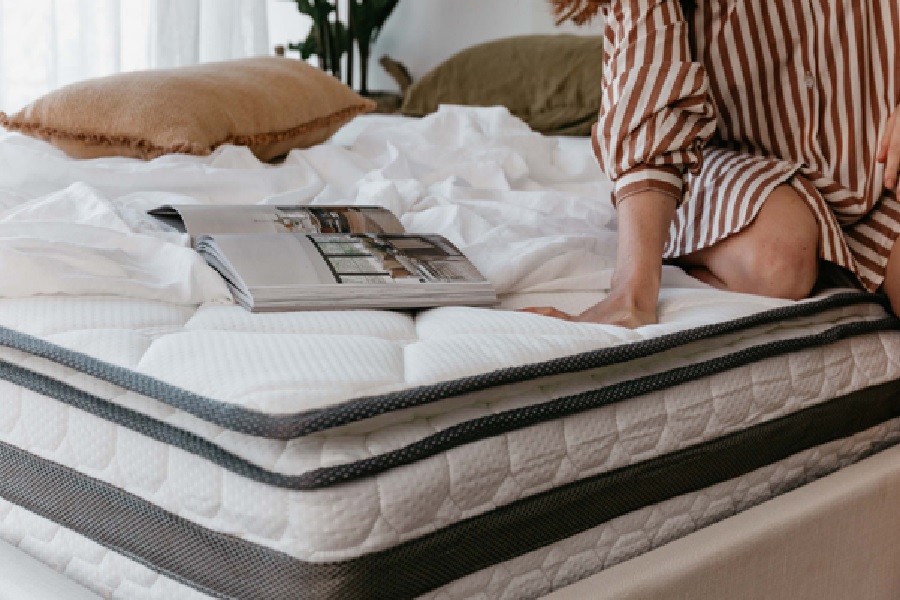Nothing is more critical to our overall well-being than a good night’s sleep. And the key to a good night’s sleep is a comfortable bed. If you’re in the market for a new mattress, you might have already heard a lot about mattresses. And for a good reason – mattresses have revolutionized the way we sleep. However, buying a mattress is not always an easy task, especially if you don’t know where to start. This blog post will share some essential things that you need to know before you buy a foam mattress in NZ.
Here are ten things you need to know.
1. Types of Foam Mattresses
The first important factor you should consider when buying a mattress is the type of foam. There are three main types of mattresses available in the market: memory foam, latex foam, and poly-foam. Memory foam responds to body heat and pressure and contours your body for maximum comfort. Latex foam is made from natural or synthetic latex and provides both comfort and breathability. Poly-foam is a cheaper version of foam but is less durable and has less resistance to wear and tear.
2. Foam Density
Foam density is the measure of how much a cubic foot of foam weighs. The higher the foam density, the better the foam quality, support, and durability. Foam density is usually measured in pounds per cubic foot (pcf), and a good foam density for a mattress should be above 2.5pcf.
3. Firmness Levels
Foam mattresses come in different firmness levels, and choosing the right one can make a significant difference in sleep quality. The firmness level you choose will depend on your sleeping habits, body weight, and preferences. So before settling on a particular firmness level, test the mattress to see if it provides the right amount of support and comfort.
4. Mattress Thickness
The thickness of the mattress also plays a vital role in sleep quality. It is recommended that the thickness of your mattress should be a minimum of 8 inches. However, if you are looking for more cushioning, you can opt for a thicker mattress.
5. Temperature Sensitivity
Memory mattresses tend to be temperature sensitive, which means they soften and contour to your body when they come into contact with the heat of your body. However, this may cause the mattress to sleep hot, especially during the summer season. If you tend to get hot at night, you may want to consider a latex foam, which provides excellent breathability and temperature regulation.
6. Off-Gassing
Off-gassing refers to the smell that a new foam mattress emits after being unpacked. This smell is due to volatile organic compounds (VOCs) that are released as the mattress decompresses. Although off-gassing is harmless, it can be quite unpleasant and may linger for a few days. If you are sensitive to smells, consider buying a mattress that has low VOCs.
7. Edge Support
Edge support is an essential factor to consider, especially if you tend to sit on the edge of the bed or you need a mattress that offers excellent support when getting in and out of bed. Memory foam mattresses tend to be less supportive around the edges than other types of mattresses.
8. Durability
Foam mattresses are known to be durable, but how long they last depends on the quality of the foam and the materials used to construct the mattress. A good quality mattress should last between 7-10 years, but it can even last up to 15 years with proper care and maintenance.
9. Warranty and Return Policy
When buying a mattress, ensure you check the warranty and return policy. Ensure you are clear about the terms and conditions, the length of the warranty, and what it covers. A good warranty should cover defects, sagging, and other issues related to the mattress’s materials and workmanship.
10. Price
Foam comes in a range of prices, and the price you pay will depend on the quality, brand, and features of the mattress. However, being expensive does not always mean better quality. Consider your budget and do some research to find an affordable foam that provides excellent value for your money.
Conclusion:
Finding the right foam mattress in NZ can be challenging, but it doesn’t have to be. By considering these above factors such as foam density, firmness level, thickness, temperature sensitivity and off–gassing, you can make a well-informed decision that will guarantee you a good night’s sleep for years to come. Remember to prioritize your comfort, support, and quality when making the final decision. Happy mattress shopping!


